Pope Francis deplores ‘Third World War’
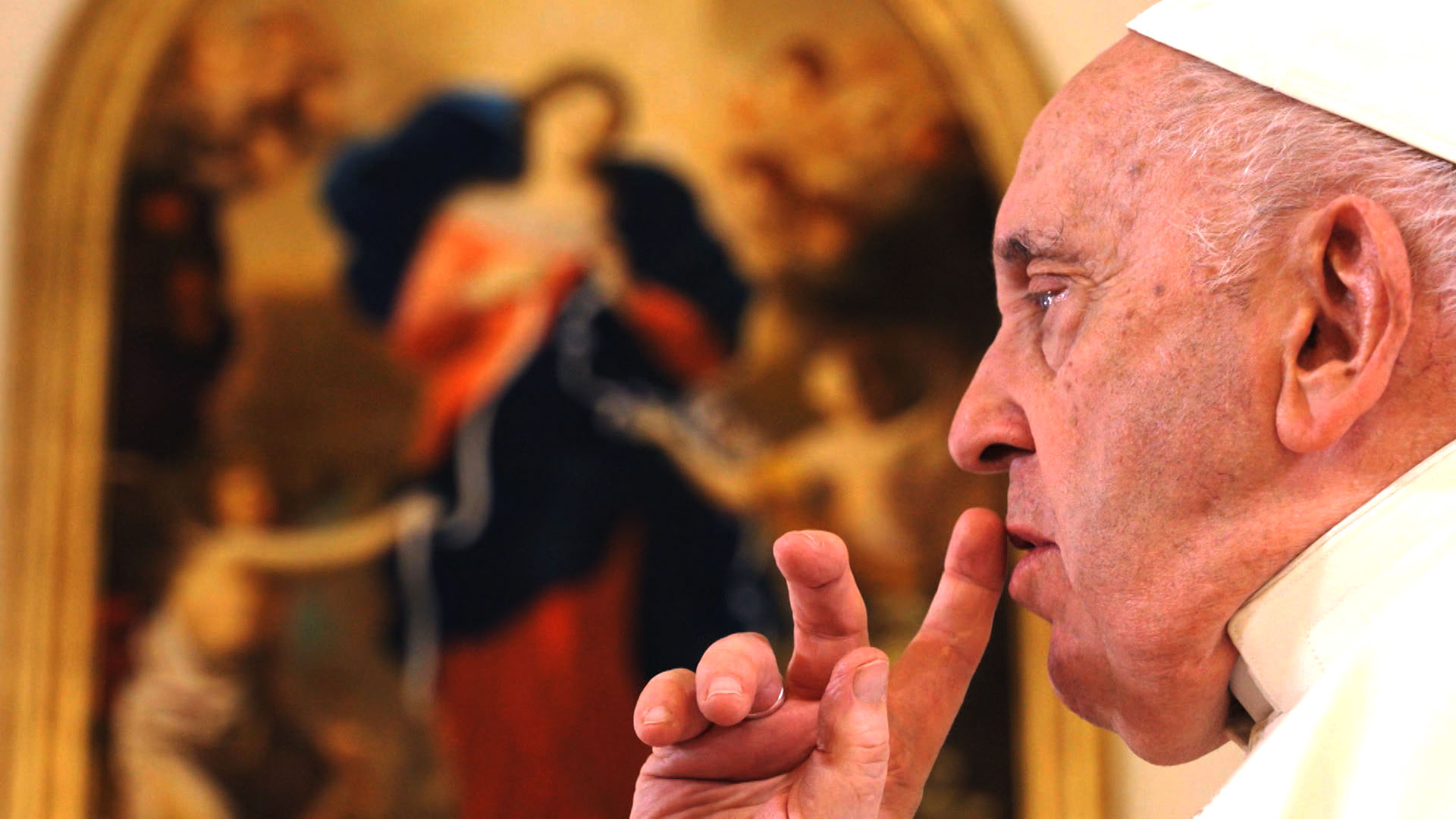
Money – or rather its misuse – is what drives people away from God and prompts them to go to war, says Pope Francis in an extended interview with Swiss public television, RSI.
From the war in Ukraine and wars in general to homosexuality, climate change and sexual abuse scandals, the wide-ranging interview took place on the Argentinian’s ten-year anniversary as head of the Catholic Church.
Francis also touches on Switzerland – a country “which has a character all of its own”, he says, but is at the same time “universal”. Here are a few extracts from the interview.
RSI: You have often appealed for peace in the world. There are certainly plenty of wars going on. But why is it so hard to grasp the horror of war? If people did, wouldn’t they stop?
Pope Francis: To me war is a crime; it’s something that’s simply not acceptable. In little more than a century there have been three world wars: 1914-1918, 1939-1945, and now this one, which is a world war. It started on a small scale, but at this point no one can pretend it’s not on a global scale. All the great powers are caught up in it. Ukraine is their battlefield. They’re all fighting there.
This makes one think about the arms industry. The big industry. An expert told me that if no weapons were produced for a year, the problem of hunger in the world could be solved. It’s a market. A war starts, old arms are sold off, new ones are tested out… Two months ago there was talk about some strange drone; new weapons were being tested – are being tested. Wars serve this purpose, to test out weapons. If they tested something else of real benefit to humanity – I’m thinking of education, food and medicines – it would be wonderful.
RSI: As regards war, in a recent speech at the Sanremo Music Festival, actor and director Roberto Benigni quoted the article in the Italian constitution which says that Italy repudiates war. He said that if everybody had this wording in their constitution, there would be no more war. But it’s not so easy…
P. F.: It’s difficult, because there are vested interests. Money really is the root of all evil. The Devil loves to be around money. It has always struck me that Jesus says we cannot serve two masters. “Either you serve God…” and I expected him to go on and say “or you serve the Devil”, but he doesn’t actually mention the Devil. He says “Either you serve God or you serve money.” That is striking. Jesus demonises the false use of money. When people don’t know how to use money correctly – for education, for families, for helping others – and instead use it selfishly, it always ends badly. One ends up in a place without God, far from God – or with money as one’s God.
RSI: And the current global conflict is also due to this?
P. F.: Yes, there’s always money being made out of it somehow.
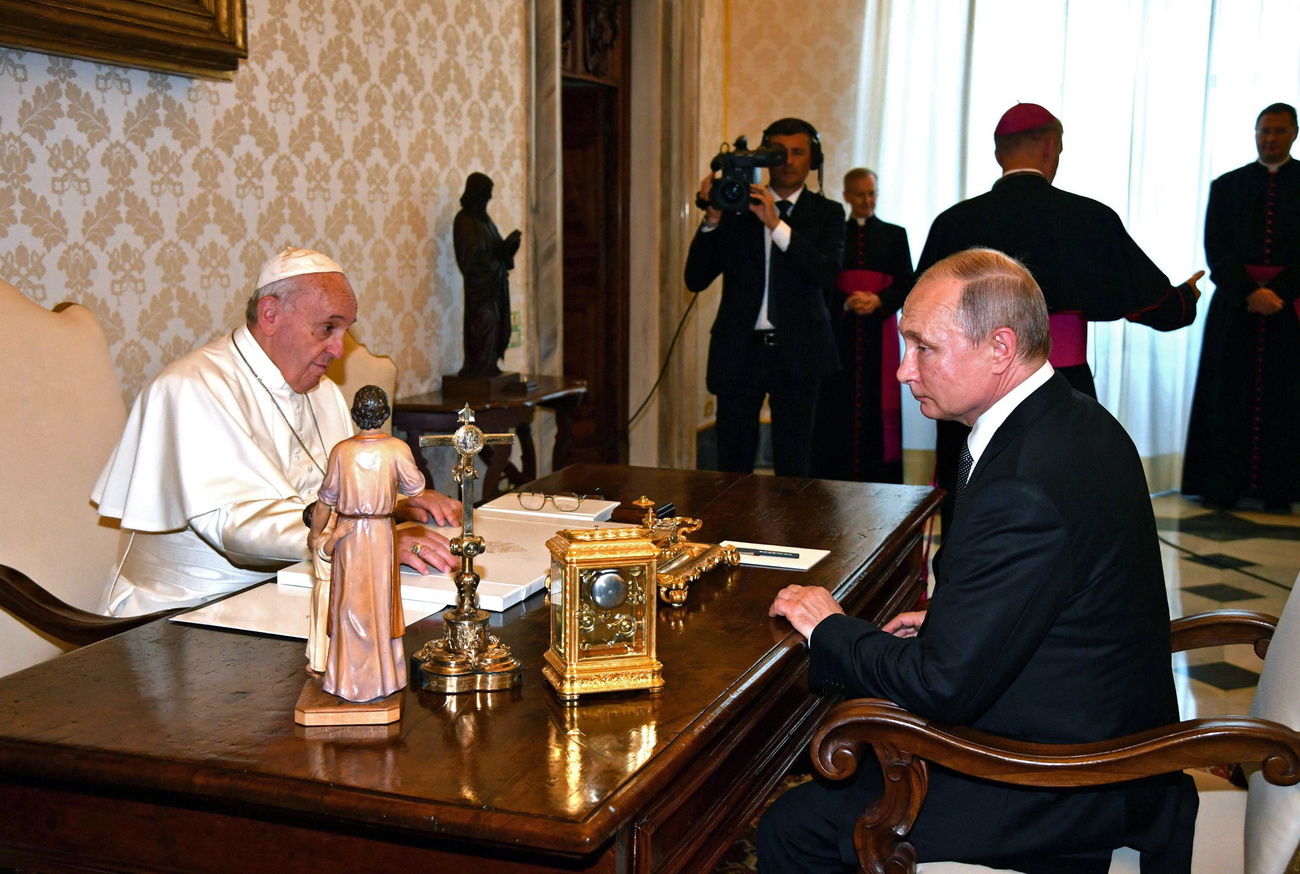
RSI: Prior to this conflict you met Russian President Vladimir Putin several times. If you met him now, what would you say to him?
P. F.: I’d talk to him straight, the way I talk in public. He’s an educated man. I’ve offered to go and talk to him. The second day into the war I was at the Russian Embassy to the Holy See saying I was ready to go to Moscow if Putin would leave me some room to negotiate. [Russian Foreign Minister] Sergei Lavrov responded: “Thanks very much, but now’s not the right time.”
I know Putin heard about this. He knows I’m available. But there are imperial interests at stake, not just the Russian empire, which has been around since Peter the Great and Catherine the Great, but the other empires too. There are these empires. And empires put nations in second place.
RSI: How is your relationship with Patriarch Kirill, head of the Russian Orthodox Church, at the moment?
P. F.: I’ve talked to him on the phone. I had intended to have a second meeting with Kirill this past year, but we decided to leave it open until after the war. The other day I met Metropolitan Anthony, Kirill’s deputy. He’s a fine chap. He was once a parish priest in Rome, and he came with a letter from Kirill. We always keep up contact with the Orthodox patriarchs. Bartholomew [Ecumenical Patriarch of Constantinople] is like a brother to me. Another good fellow is Theodore II, the Coptic patriarch – he’s a true man of God. But I have good contacts with them all.

More
Why Russia sees satanic powers at work in Ukraine
RSI: What other wars are you particularly concerned about?
P. F.: The conflict in Yemen, which has been going on for more than ten years. Syria, again for more than ten years. The poor Rohingya of Myanmar, who are still suffering. Why do people have to suffer when peace is so beautiful and does you so much good? Wars just hurt. It’s not God’s spirit that guides a war. I don’t believe in holy wars.
RSI: People used to.
P. F.: They did, but that was another time.
RSI: Your predecessor Pope Benedict XVI started the process to deal with sexual abuse committed by priests against minors, and you continued this. Progress has been made, but why is the problem still there?
P. F.: Because we’re human. Do you know the statistics? They’re awful: 40% of abuse happens in the home and the neighbourhood. Even today. Then there’s the world of sport, and education – 3% is committed by Catholic priests. Is that just a little? No, it’s too much! Even if there was only one case, it would be one too many, because a priest is there to help people grow, to make them holy, and not to ruin young lives with abuse. For all those reasons, Pope Benedict had the courage to say: no, let’s do something about this.
It’s not easy. Sometimes you get false accusations, and you have to distinguish them. Sometimes they’re true and you have to take action. We also had to make decisions involving several bishops. When abuse is going on, we investigate. The scandal in Boston was where it all started, and since then the Church has been making progress. Three months ago I had a meeting with a working group from Brazil. They told me that within the home the rate of abuse is 46%. It gets covered up. Today, in families and local communities, people are still doing what we used to do. Now we don’t cover up anything. There are accusations and cases of human suffering, so many of them, sins of priests and bishops, but we have to keep going, because God is bigger than all of this. God won’t forgive us if we don’t keep on going.
RSI: You have met groups of victims several times. What do you tell them?
P. F.: I listen to them. One time was beautiful, in Ireland. There were six or seven adults, and they all had their own stories to tell. They had been abused as children. I was going to have to ask for forgiveness when I gave the sermon the next day. And I said to them: why don’t we prepare the sermon together? It was a wonderful meeting, because they helped me understand the mystery [of abuse]. They are good people coping with the suffering they carry with them.
Another time I met a group of men who had been abused in a school in England. Now they’re old, but they were children when they were abused. In those days everything got covered up. It’s human misery. But one thing I just don’t understand is online child pornography. They make these films of them. Do you know in what city this is happening, or in what country? No one knows. Can’t secret services find out where this is? You can watch this stuff on your phone and it just sows the seeds of evil inside you. You see a child being abused in the most horrible ways. This is my appeal to everybody: if you know about people who are doing this, turn them in. It’s crucial.
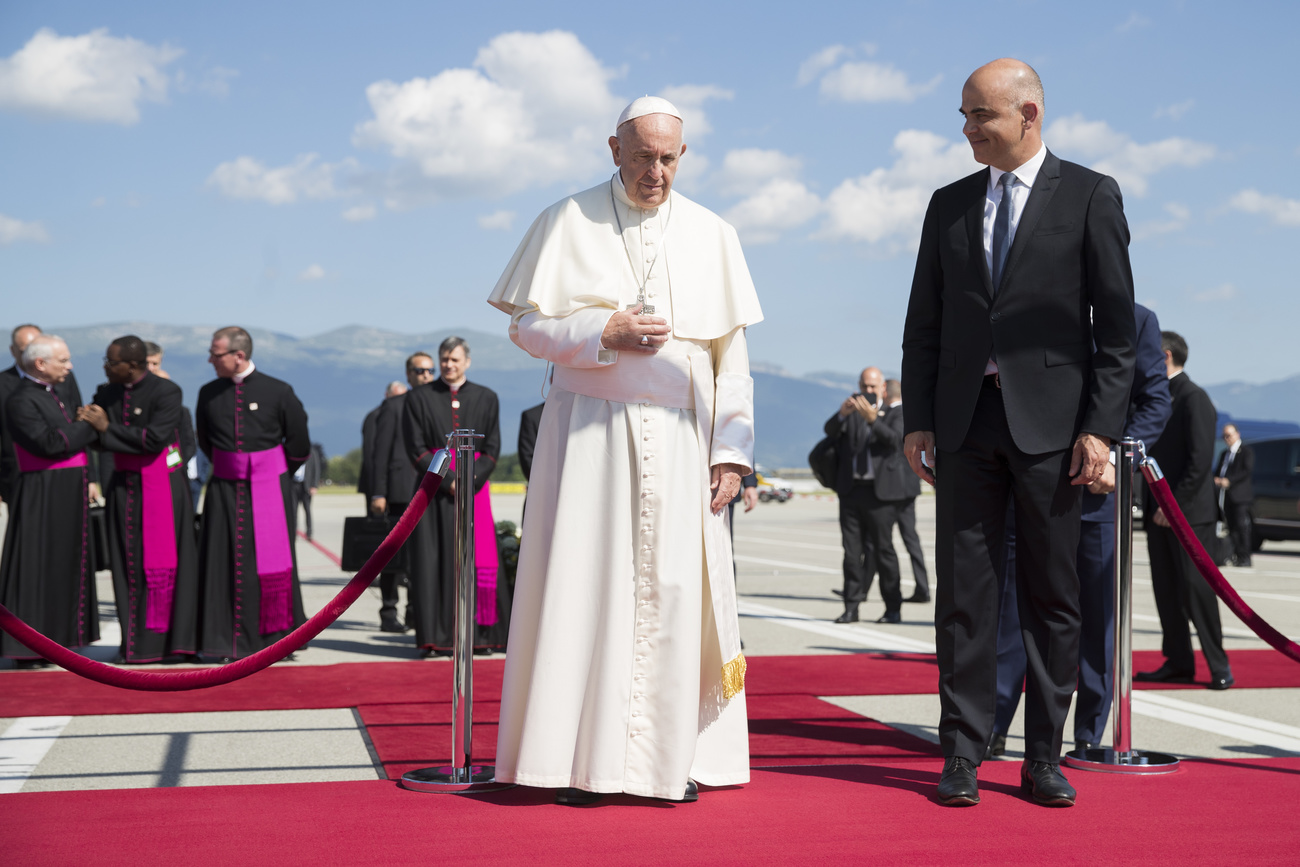
RSI: What image do you have of Switzerland?
P. F.: Switzerland has a character of its own, but it’s universal too. When Switzerland stays neutral in wars, it’s not just keeping pure, it’s not washing its hands of it, it’s a call to find balance, and unity. I have a high regard for the Swiss. It’s a funny thing: every region there has its own character. I see this in the Swiss Guards in Rome. The ones from Ticino are closer to us, the ones from Geneva are more French, and the ones from the German part have their own character, but they’re all great. The Swiss have a lovely humanity about them.
RSI: Switzerland was once a hotbed of the Reformation. Luther, Calvin and the rest started out with hopes of reforming the Church and purifying it. Even today Protestantism has this vocation in its DNA. What do you think of that idea?
P. F.: I think the Church is always in need of reform. As the saying goes, Ecclesia semper reformanda est… The saints all did this too. Luther and Calvin were men of good will. The trouble was, it ended up in an ugly split between churches. Now ecumenical dialogue helps us mend our differences like brothers. God be thanked that we can now pray together, be charitable together, travel along the road together…
The theologians are studying how we could find unity. There was a great Orthodox theologian who died recently, John Zizioulas. He was involved in the presentation of the Laudato si’ [encyclical] here [in Rome]. This great theologian, whose field was eschatology, liked to say “we do good, we pray and walk together, but let the theologians study.” In answer to the question: “when will they finally come to an agreement?” he used to say: “maybe in the eschatological moment” [death]. The man had a sense of humour. But the important thing is to walk on like brothers. Let’s not argue, please, but let’s concentrate on doing good and praying together.
Translated from Italian by Terence MacNamee
The original interviewExternal link was published in Italian on Swiss public television, RSI, on March 12, 2023
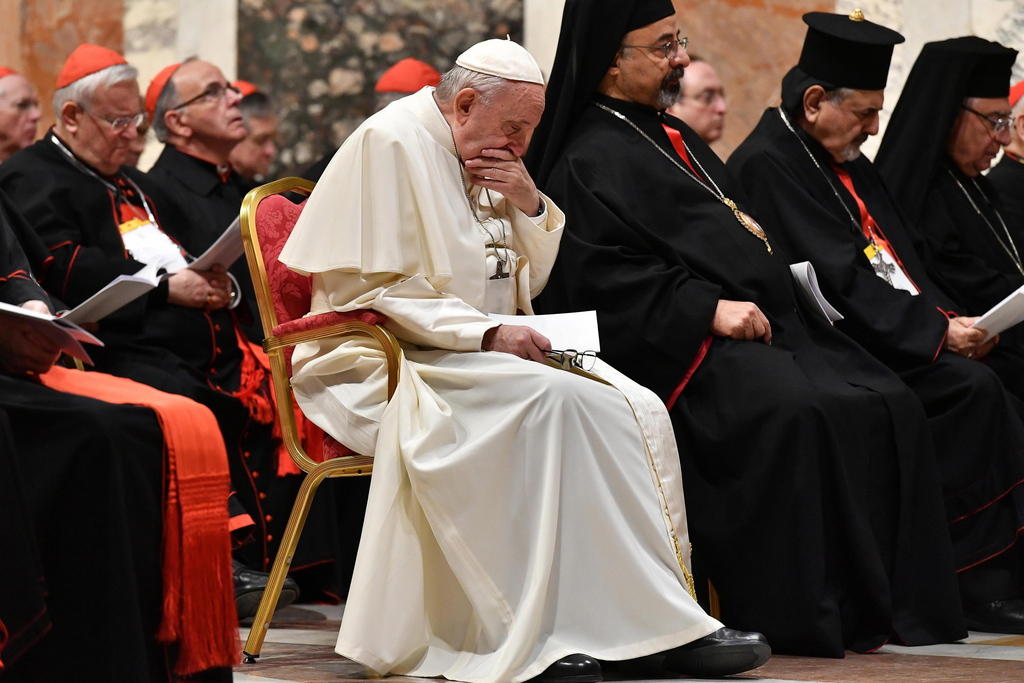
More
Pope meets with Swiss victims of sexual abuse

In compliance with the JTI standards
More: SWI swissinfo.ch certified by the Journalism Trust Initiative








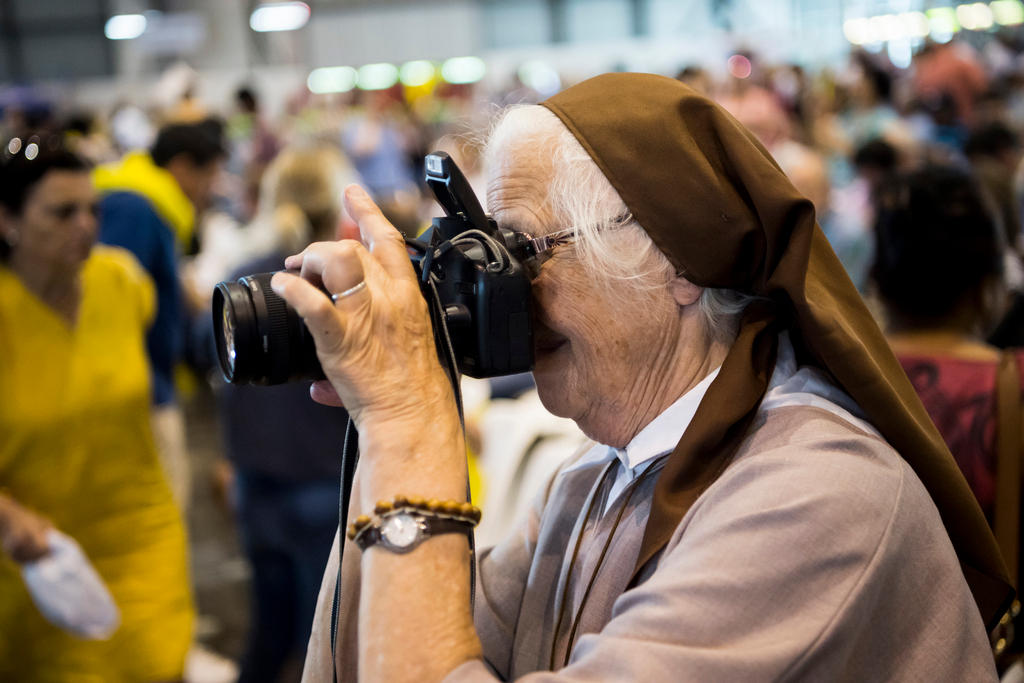
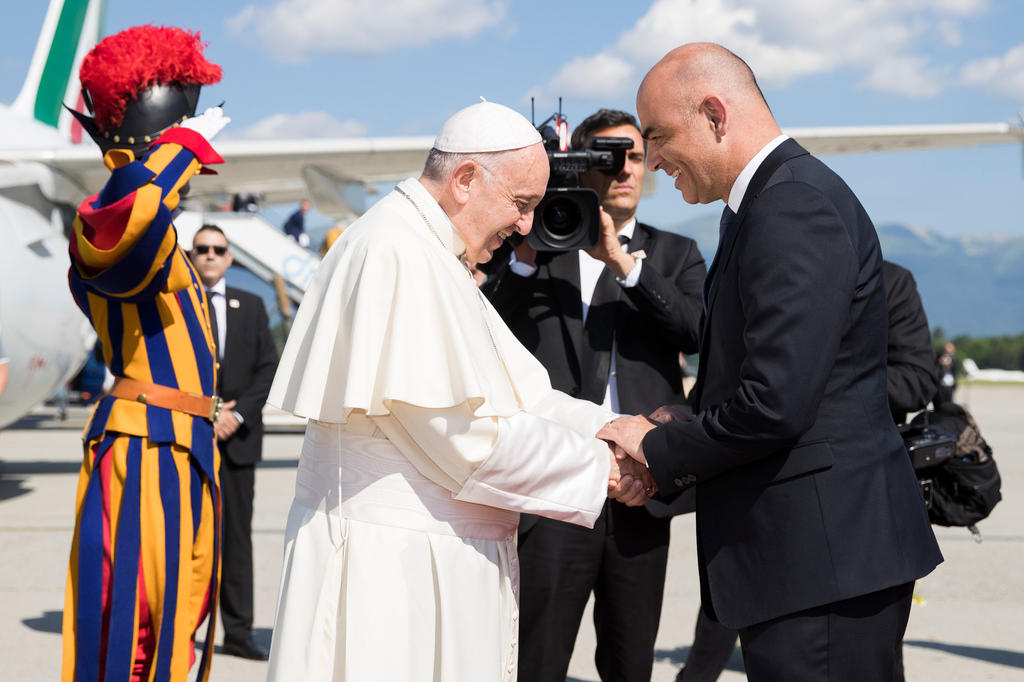

You can find an overview of ongoing debates with our journalists here . Please join us!
If you want to start a conversation about a topic raised in this article or want to report factual errors, email us at english@swissinfo.ch.